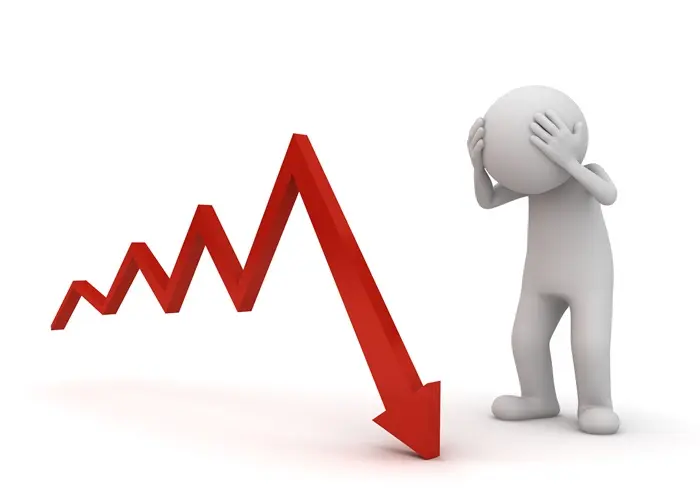Apple Inc., a giant in the tech industry, has seen its stock price experience fluctuations over time. In recent months, many investors and market watchers have raised concerns about why Apple stocks are down. With its massive market capitalization, Apple is closely followed by analysts and investors alike, and any decline in its stock can make headlines. Understanding the reasons behind a drop in Apple’s stock price is crucial for investors, as it can have far-reaching implications not only for the company but also for the broader market.
In this article, we will explore the key factors contributing to the decline in Apple stock prices. We will examine the internal and external factors that can influence its performance, including market trends, consumer demand, competition, and broader economic conditions.
Understanding the Decline in Apple Stock
Apple’s stock price is impacted by various factors, both short-term and long-term. While the company’s fundamentals remain strong in many areas, the market’s reaction to certain challenges has caused a downward trend in its stock price. Let’s delve into some of the main causes of this decline.
1. Slowing iPhone Sales and Product Saturation
Apple has long relied on its flagship product, the iPhone, for a significant portion of its revenue. The iPhone is not only a cornerstone of Apple’s product line but also a key driver of its profitability. However, in recent years, the growth in iPhone sales has slowed down. As the smartphone market matures, particularly in developed markets, consumers are holding onto their devices longer and are less inclined to upgrade frequently.
The lack of significant new features in the latest iPhone models has led to a perception of stagnation. Apple has made incremental updates to the iPhone, but these changes may not be compelling enough for many consumers to justify upgrading. This can result in weaker demand and lower sales, which directly impacts Apple’s revenue and stock price.
2. Global Supply Chain Issues
Apple, like many other companies, has faced disruptions in its supply chain. The COVID-19 pandemic triggered a series of global supply chain challenges, from component shortages to factory shutdowns. Even as the world recovers from the pandemic, the effects of these disruptions linger. Apple relies heavily on a global network of suppliers and manufacturers to produce its products, and delays in the production process can cause product shortages, which in turn affect the company’s ability to meet consumer demand.
These supply chain issues, particularly with key components like semiconductors, have resulted in delays in product releases and reduced availability of popular items. This can lead to lower sales expectations, and in turn, a decline in stock prices.
3. Increased Competition in the Tech Sector
The technology industry is highly competitive, and Apple faces significant pressure from rival companies, particularly in the smartphone market. Brands like Samsung, Google, and increasingly Xiaomi, have become formidable competitors to Apple. These companies often offer similar products at lower prices, appealing to price-sensitive consumers.
Moreover, Apple’s ecosystem, while powerful, is also being challenged by other tech companies offering compatible or alternative solutions. This competition is driving Apple to innovate at a faster pace and invest heavily in R&D, but it also increases the risk of market share loss, which can affect investor sentiment and stock price.
4. Rising Interest Rates and Economic Conditions
Another external factor affecting Apple’s stock price is the broader economic environment. In recent years, global interest rates have been on the rise. Central banks, particularly the U.S. Federal Reserve, have raised interest rates to combat inflation, which has been at high levels in many regions. Higher interest rates can make borrowing more expensive for businesses and consumers, leading to reduced spending on goods and services, including technology products.
As a large, multinational corporation, Apple is highly sensitive to changes in global economic conditions. A slowdown in consumer spending can reduce demand for its products, especially in more discretionary areas such as high-end electronics. This can lead to lower sales and, consequently, lower stock prices.
5. Concerns Over China and Geopolitical Tensions
Apple has a significant presence in China, both as a manufacturing hub and as a consumer market. However, ongoing geopolitical tensions between the United States and China have created uncertainty for companies like Apple that have deep ties to the region. Tariffs, trade restrictions, and regulatory challenges can disrupt Apple’s supply chain and make it more difficult to maintain profitability in China.
Additionally, Apple faces increasing scrutiny from the Chinese government regarding data privacy and security. Any actions by the Chinese government to impose stricter regulations or favor local competitors over foreign companies could have a negative impact on Apple’s operations and stock price.
6. Apple’s Transition to New Revenue Streams
While the iPhone has historically been Apple’s main source of revenue, the company has increasingly relied on services such as iCloud, the App Store, Apple Music, and Apple TV+ to diversify its revenue streams. Although these services have shown growth, they are not yet as profitable or as scalable as the iPhone business. Additionally, Apple’s attempt to expand into other areas, such as wearables and electric vehicles, has not yet proven to be a major contributor to its bottom line.
Investors are closely watching Apple’s ability to transition from being primarily a hardware company to a more service-based model. Any delays or challenges in these new revenue streams could contribute to a decline in stock prices.
7. Apple’s Expensive Stock Valuation
Another factor influencing Apple’s stock price is its valuation. Apple is one of the most valuable companies in the world, and its stock price has often been considered expensive relative to its earnings. While the company’s fundamentals remain strong, high valuations can make stocks more vulnerable to correction, particularly if there is any sign of weakening performance or external pressures.
Investors may decide to take profits or shift their investments to other opportunities, especially when the broader market experiences volatility. This can lead to a decline in the stock price, even if the underlying business is performing well.
How Apple Can Recover from Its Stock Decline
While Apple’s stock has experienced a downturn, the company still has several factors in its favor. Apple’s brand strength, loyal customer base, and vast cash reserves give it a solid foundation to weather economic and market challenges. The company has a history of innovating and adapting to changing market conditions, and it is likely to continue investing in new technologies and services to drive future growth.
To recover from the decline, Apple must focus on the following:
Innovating Product Offerings: Apple needs to ensure that its products, especially the iPhone, remain competitive and desirable to consumers. This could involve introducing more radical innovations or rethinking its product strategy.
Expanding in Emerging Markets: While Apple has a strong presence in developed markets, there is still significant growth potential in emerging markets like India, where demand for smartphones is increasing.
Focusing on Services: Apple’s services business has seen impressive growth, and expanding this segment further could help diversify its revenue streams and reduce reliance on hardware sales.
Adapting to Market Conditions: Apple must remain agile in adapting to changes in the economic environment, including rising interest rates, inflation, and shifting consumer preferences.
Conclusion
Apple’s stock price decline is the result of a complex set of factors, including slowing iPhone sales, global supply chain issues, increased competition, rising interest rates, and geopolitical tensions. However, Apple remains one of the most successful and influential companies in the world, with a strong brand, loyal customers, and vast resources. While the stock has faced challenges, it is important for investors to evaluate the long-term outlook for the company.
In the ever-changing world of technology and finance, market fluctuations are inevitable. Apple’s ability to navigate these challenges will determine whether its stock can recover and continue to thrive in the future. For now, investors should keep a close eye on the company’s next moves, as it adapts to the evolving landscape and looks to capitalize on new growth opportunities.
Related topics:



























